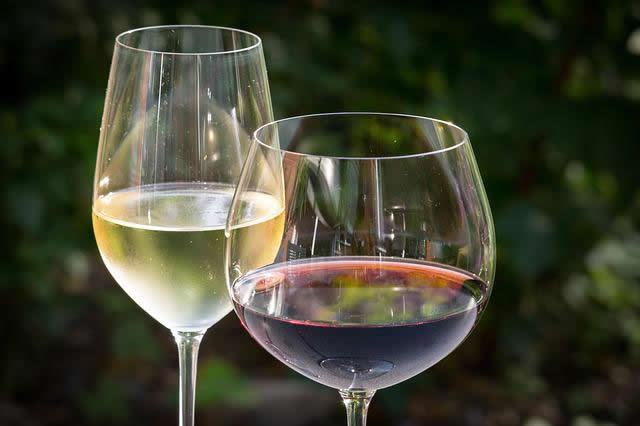先日から「The Arctic Circle: A new frontier for sustainable wine -「北極圏:サステイナブルワインの新たなフロンティア」を読んでいます。

・「北極圏:サステイナブルワインの新たなフロンティア」(1)
・「北極圏:サステイナブルワインの新たなフロンティア」(2)
・「北極圏:サステイナブルワインの新たなフロンティア」(3)
・「北極圏:サステイナブルワインの新たなフロンティア」(4)
・「北極圏:サステイナブルワインの新たなフロンティア」(5)
・「北極圏:サステイナブルワインの新たなフロンティア」(6)
・「北極圏:サステイナブルワインの新たなフロンティア」(7)
・「北極圏:サステイナブルワインの新たなフロンティア」(8)
・「北極圏:サステイナブルワインの新たなフロンティア」(9)
A changing climate is not discriminatory, and no one is spared from the extreme fluctuations in weather.
気候の変化に偏りはなく、その極端な変動からは誰も逃れられない。
discriminatory「差別的な、識別力のある」。
fluctuation「高下、変動」。
“The net impact for society is overwhelmingly negative,” said Kimberly Nicholas, an assistant professor of sustainability science at Lund University in Sweden.
「最終的な社会への影響は圧倒的にマイナスです」と指摘するのは、スウェーデンのルンド大学・持続可能性科学助教授、キンバリー・ニコラス氏。
“If we were to experience 4C of global warming, Sweden would be the epicentre of Pinot Noir.
「もし4℃の温暖化が起きたら、スウェーデンはピノ・ノワールの一大産地になるでしょう。
But if we get to a world with four degrees of warming, we’re not going to have a functional world.
しかしそんな事になったら、世界は機能しなくなります。
We’re not going to have wine industry that can exist and thrive.”
そうなればワイン産業の存在も繁栄もありません。」
If anything, climate change is forcing winemakers from all over – not just in Arctic nations – to look at alternatives.
むしろ気候変動は、北極圏の国々だけでなく、世界中のワインメーカーに代替案を検討することを迫っている。
if anything「どちらかと言えば、むしろ、それどころか、いずれにしても」。
“We might have to take North African grapes up to Italy because it doesn’t rain anymore,”
「雨が降らなくなったので、北アフリカのブドウをイタリアに持ち込むことになるかもしれません」
said Swedish winemaker Sofia Ruhne, the second-generation owner of Terreno – a winery in the Chianti region of Tuscany, Italy.
と語るのは、イタリア・トスカーナ州キャンティ地方のワイナリー「テレーノ」の2代目オーナーで、スウェーデン人のワインメーカー、ソフィア・ルーネ氏。
To mitigate the impact of heat waves, Ruhne has expanded her Italian estate into high-altitude areas – an investment that she said has paid off already.
熱波による影響を軽減するため、ルーネ氏はイタリアの高地に所有地を拡大し、すでにその投資の成果が現れているという。
mitigate「やわらげる、静める、鎮静する、軽減する」。
“You can really see the difference,” she said, noting that her high-altitude wines are less alcoholic and more acidic.
高地で造られたワインはアルコール度数が低く、酸味が強い「その違いがよくわかります」と彼女。
She is also now conducting experiments on how to best grow wine grapes in the outskirts of Stockholm in Sweden, near a hotel she and her family owns.
さらに彼女は、スウェーデンのストックホルム郊外にある家族が経営するホテルの近くで、ワイン用ブドウの最適な栽培方法の実験も行っている。
“The soil outside Stockholm is very fertile because it hasn’t been cultivated that many years,” she said.
「ストックホルム郊外の土壌は、長い間耕作されていないため、とても肥沃です。」
“However, vines usually tend to thrive in struggling soils, so we really need to find the right varieties.”
「ですがブドウの木は通常、痩せた土壌の方が良く育つので、適切な品種を見つけねばなりません。」
北極圏で美味しいワインが出来ることを喜んでいる場合ではく、むしろワインメーカーは気候変動に対応する案を早く検討すべきだと。
現実的に出来るのは、栽培する土地を変えるか、育てる品種を変えるかですよね。
しかしブドウの木は充実した収穫が出来るようになるまで、十年単位の時間がかかるので、どちらにせよ大変な事。
先の気候変化まで計算した上での判断になるのでしょうが、設備投資も莫大ですし、そう簡単ではありませんよね。
理由は単純明快!「少ないコストでしっかり楽しく学べるから」。
私自身の経験(高機能でビックリ)をびっしり書いていますので、良かったら読んでみてください。
下のバナーからどうぞ!






